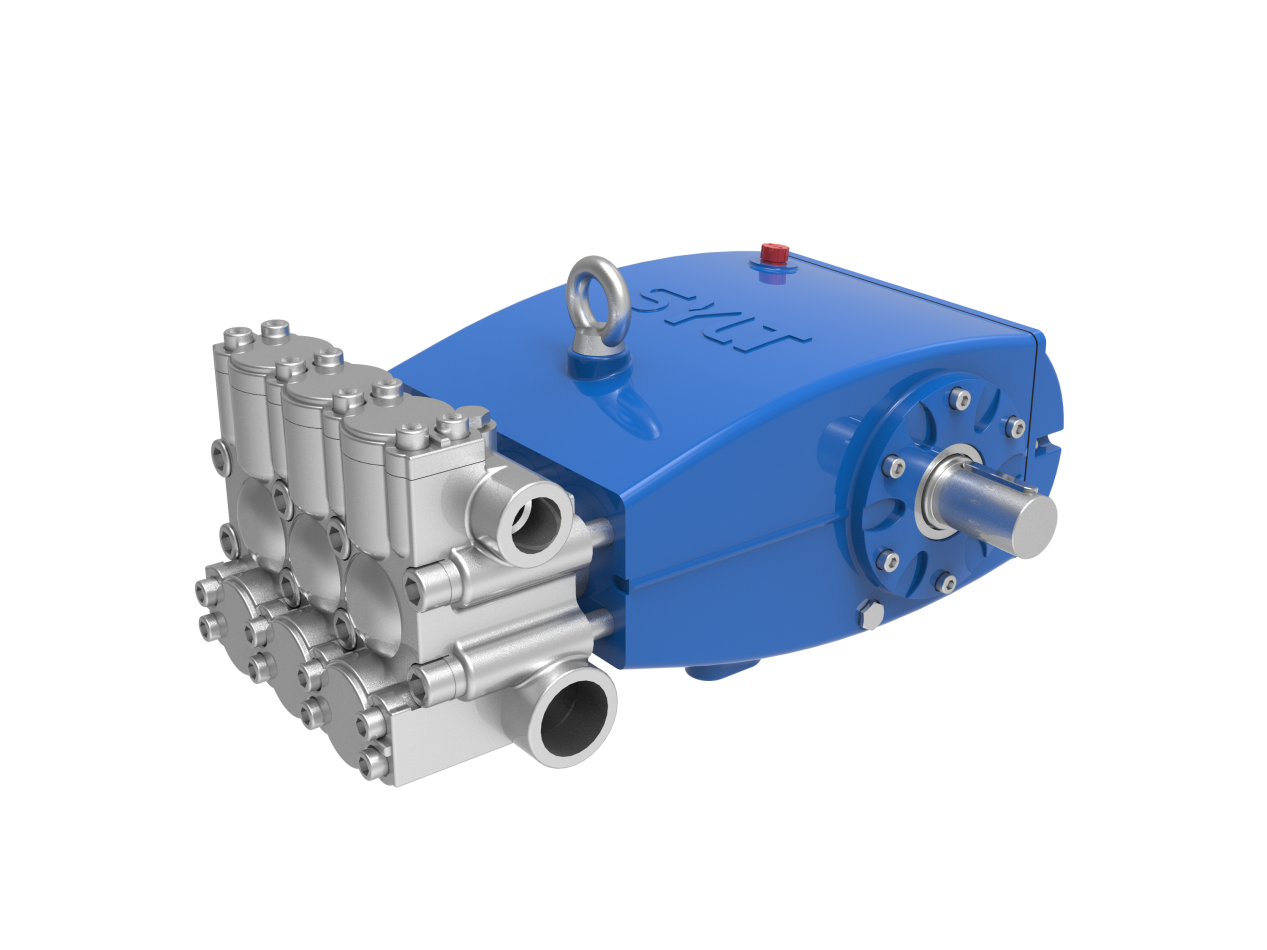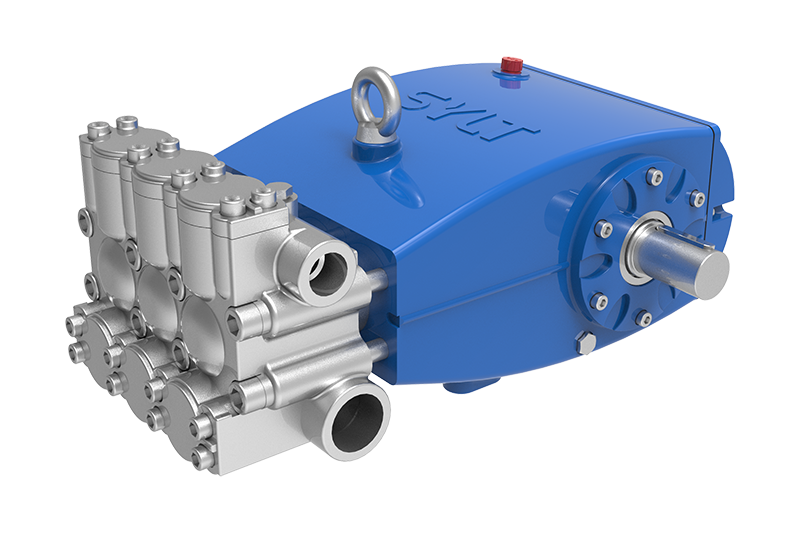1. Introduction
In today's rapidly evolving industrial landscape, efficiency is paramount. High pressure pumps play a crucial role in optimizing processes across various sectors. These specialized devices are designed to generate pressure levels exceeding 500 psi, facilitating the transport of fluids in demanding environments. By unlocking new avenues for efficiency, advanced high pressure pumps contribute significantly to productivity, safety, and environmental sustainability.

2. What Are High Pressure Pumps?
High pressure pumps are mechanical devices engineered to move fluids at elevated pressures. Unlike standard pumps, which cater to low-pressure applications, these pumps are tailored for tasks requiring substantial pressure outputs. They are essential in operations where the movement of viscous or abrasive fluids is necessary, providing a reliable solution for various industrial challenges.
Understanding Pump Mechanics
The mechanism of a high pressure pump involves two primary components: the impeller (or diaphragm) and the motor. The motor generates rotational energy, transferring it to the impeller, which propels the fluid. The design of the pump determines its efficiency, flow rate, and suitability for specific applications, making it essential to choose the right type for the intended task.
3. Types of High Pressure Pumps
High pressure pumps can be broadly categorized into two main types: positive displacement pumps and dynamic pumps. Understanding these categories is vital for selecting the appropriate pump for your specific application.
3.1 Positive Displacement Pumps
Positive displacement pumps operate by trapping a fixed amount of fluid and forcing it into the discharge pipe. They are ideal for handling high-viscosity liquids and are commonly used in industries such as automotive and food processing. Variants include gear pumps, diaphragm pumps, and screw pumps, each designed for different fluid characteristics and requirements.
3.2 Dynamic Pumps
Dynamic pumps, on the other hand, rely on kinetic energy to move fluids. They are suitable for applications requiring high flow rates and lower viscosity fluids. Centrifugal pumps are the most common type in this category, widely utilized in water treatment and cooling systems. Their design allows for efficient operation, making them a staple in numerous industrial setups.
4. Applications of High Pressure Pumps in Industries
The versatility of high pressure pumps enables their application across multiple sectors, each benefiting from their unique capabilities.
4.1 Oil and Gas Industry
In the oil and gas sector, high pressure pumps are integral to various operations, including drilling, production, and transportation. They facilitate the transfer of crude oil and natural gas, ensuring efficient extraction and distribution processes. Moreover, these pumps are essential for hydraulic fracturing, where high pressure fluids create fractures in rock formations to enhance oil and gas recovery.
4.2 Chemical Processing
The chemical processing industry utilizes high pressure pumps to handle aggressive and corrosive fluids. These pumps ensure accurate dosing and mixing of chemicals, contributing to the safe and efficient production of pharmaceuticals, fertilizers, and petrochemicals. Their ability to maintain high pressures and flow rates is vital for complex chemical reactions.
4.3 Water Treatment
In water treatment facilities, high pressure pumps play a crucial role in filtration and reverse osmosis systems. They help in removing impurities and delivering clean water to communities. The ability to operate at high pressures ensures effective treatment processes, which are essential for maintaining public health and environmental safety.
4.4 Manufacturing and Production
Manufacturing industries rely on high pressure pumps for various applications, including cooling, lubrication, and material transport. From automotive assembly lines to food production, these pumps enhance operational efficiency by ensuring consistent fluid flow, reducing downtime, and improving overall productivity.
5. Advantages of Advanced High Pressure Pumps
Investing in advanced high pressure pumps offers numerous advantages for industrial operations. Some key benefits include:
Enhanced Efficiency
High pressure pumps are designed for optimal performance, allowing for faster fluid transfer and reduced energy consumption. This efficiency translates to lower operational costs and increased productivity.
Improved Reliability and Safety
With robust construction and advanced materials, modern high pressure pumps exhibit greater reliability and longevity. Their ability to withstand high pressures reduces the risk of equipment failure, ensuring safer operations.
Versatility in Applications
Advanced high pressure pumps are adaptable to various industrial applications, making them a valuable asset across multiple sectors. This versatility reduces the need for multiple pump types, streamlining operations.
Environmental Benefits
By operating more efficiently, high pressure pumps contribute to reduced energy consumption and lower carbon emissions. Their role in sustainable practices enhances a company’s commitment to environmental responsibility.
6. The Future of High Pressure Pump Technology
The landscape of high pressure pump technology is continuously evolving. Innovations in materials, design, and automation are shaping the future of industrial pumping solutions.
Smart Pumping Systems
The integration of IoT technology into high pressure pumps allows for smart monitoring and control. These systems enable real-time data analysis, predictive maintenance, and enhanced operational efficiency, paving the way for advanced industrial automation.
Sustainable Innovations
As industries strive for sustainability, high pressure pump manufacturers are focusing on eco-friendly designs. Advances in energy-efficient motors and recyclable materials are expected to dominate the market, aligning with global sustainability goals.
Customization and Modularity
Future high pressure pumps will increasingly emphasize customization and modular designs. This approach allows industries to tailor pumping solutions to their specific needs, enhancing efficiency and reducing waste.
7. Conclusion
Advanced high pressure pumps are pivotal in unlocking efficiency across various industrial applications. Their unique capabilities to operate under demanding conditions ensure that industries can achieve optimal productivity while minimizing costs and environmental impact. As technology continues to advance, staying informed about the latest innovations in high pressure pumping solutions will be crucial for maintaining a competitive edge in the evolving market.
The 17th China International Powder Metallurgy and Hard Alloy Exhibition
The 2025 17th China International Powder Metallurgy and Hard Alloy Exhibition from March 10-12, 2025, at the Shanghai World Expo Exhibition and Convention Center, Hall H1, B425. We welcome guests to visit.
"Private custom" product design, reliable and durable finished products
"Private custom" like product design, reliable and durable finished products, professional and timely after-sales service. It is the "three basic concepts" that the company adheres to from the beginning until today ".
Experienced market research team, independent product development concept
We have experienced mature market research team, independent product research and development concept, professional design and manufacturing technology so that the company's products can be adjusted according to the specific requirements of customers timely design







